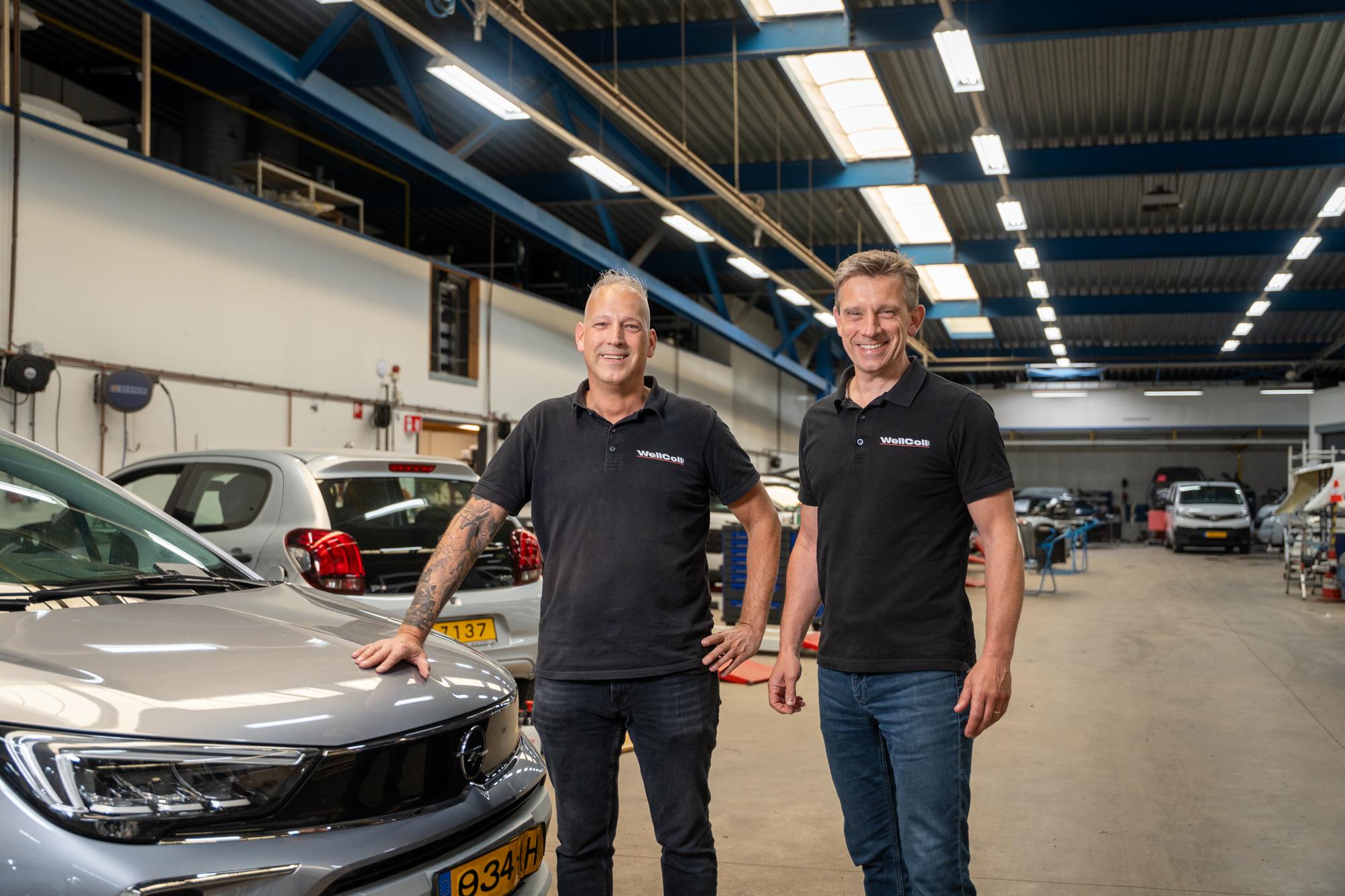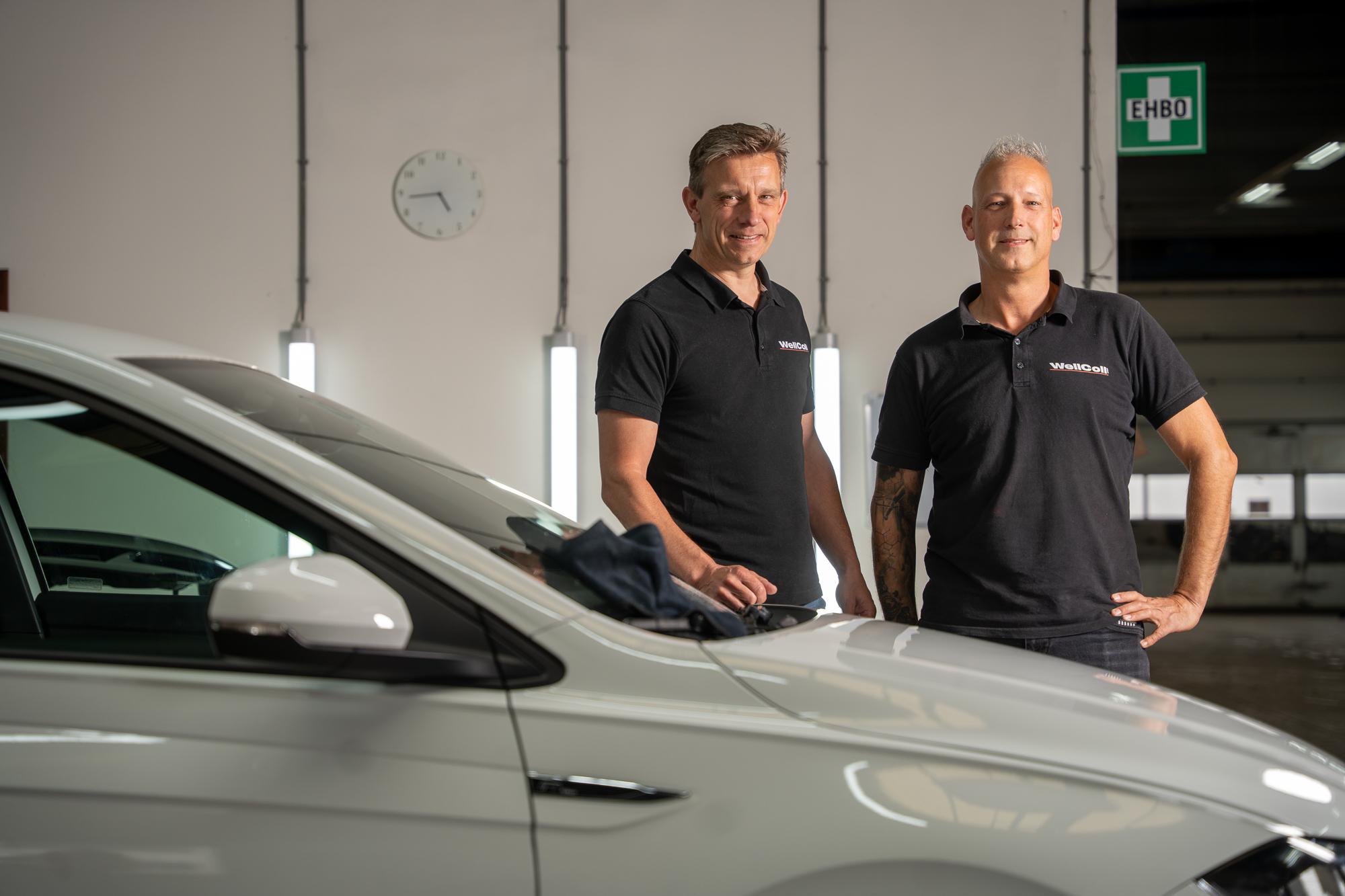WellColl has been a familiar face in South Limburg for 75 years. With six branches and a wide range of services, the car repair company has become a forerunner in mobility. But behind that strong reputation lies a quiet revolution: a structural quest for less waste and more energy efficiency.

"In our industry, innovation is not a given," explains general manager Vital Verheggen. "Yet we want to make a difference precisely by being at the forefront of sustainability. Not because we have to, but because we believe in it."
WellColl is a Limburg-based company specializing in damage repair, bodybuilding, leasing and motorhome repair. The company operates in a traditional market with many small players. "That makes large-scale investments difficult. But if we are serious about the future, we cannot sit back," Verheggen said.
Compressed air as a stealth consumer
One of the biggest eye openers for the company was the energy consumption of compressed air systems, a "silent major consumer" in the workshop. "Compressed air is crucial in our process," explains Geert Hauman, Process and Technology Coordinator. "We use it to control spray booths, for spraying itself and the lifting bridges. But it is also the most expensive form of energy."
WellColl had the outdated system replaced with frequency-controlled compressors that are more economical. In addition, the entire air system was vetted for leaks. "That may seem like a small detail, but the effect is big. By optimizing everything, we significantly reduced compressed air consumption."
Read also the story of Creemers Compressors
"Some locations have as many as twenty bridges running on compressed air. Then you're talking about a serious consumer."
40% less gas consumption thanks to smart innovations
Not only compressed air received an upgrade. WellColl is also working on substantial savings on gas consumption, especially in the spray booths. "Those are energy guzzlers," says Geert. "That's why we switched to air-drying paints that cure at lower temperatures. That results in gas savings of 40%."
In addition, the doors of the workshops were replaced with quick-closing gates to reduce heat loss. All lighting has been converted to LED. And alternative heat sources are being explored, such as connection to a regional biomass plant. "Once we can purchase hot water there, we can make another big leap in savings."
Data as a steering tool
.What stands out at WellColl is the level of insight. Each branch is continuously monitored for energy consumption. Geert: "We know exactly how many spray booth hours there are per branch and how consumption relates to that. This allows us to detect deviations and optimize processes."
Planning is also important. "By scheduling cars more intelligently in the queue, we can avoid cabs having to be reheated each time. That also saves energy. It is not about one big intervention, but dozens of small links that together make a difference."
Bumps in the road
Though sustainability is not always easy. At the newest branch in Maastricht, for example, it proved practically impossible to create an energy-efficient spray booth. "Electrification sounded good, but the necessary grid connection was simply not available," says Geert. "Therefore, we had to fall back on gas, but in combination with smarter planning and optimal utilization."
Vital adds: "Such thresholds show that sustainability is not only a technical, but also a logistical and political challenge. You sometimes get stuck on regulations or infrastructure."
From early adopter to frontrunner
The sustainability drive at WellColl gained momentum when energy prices rose rapidly a few years ago. Still, Vital says it is mainly a matter of vision: "We don't want to depend on temporary subsidies or mandatory government measures. We want to take the initiative ourselves. That means investing in knowledge, systems and cooperation."
WellColl cooperates with the municipality, province and other companies in the region, for example, within industrial parks or national working groups. "By sharing experiences and comparing profiles side by side, you discover new opportunities. And by leading the way, we also hope to inspire other companies in our industry."
"We want to give the industry a positive image. And as a larger organization, we can take that role."
What does it provide?
The concrete results speak for themselves: less gas consumption, lower electricity consumption and a significant CO₂ reduction. But just as important is the awareness in the organization. "Working sustainably is not a project with us, but an attitude," Vital says. "And thanks to colleagues like Geert, who keep asking that one extra question, we keep making strides."

Future-oriented business
WellColl will remain committed to sustainability in the coming years. "It's a continuous improvement process," says Geert. "We want to reduce gas consumption even further, keep testing new techniques and plan smarter. Every percent counts."
Verheggen concludes, "Sustainability requires both vision and courage. Our scale enables us to invest now. At the same time, we also want to inspire others. Ultimately we are not just doing this for ourselves, but for an industry that must become future-proof."
This article is part of a triptych on energy efficient business, in collaboration with Creemers Compressors, WellColl and Draline.